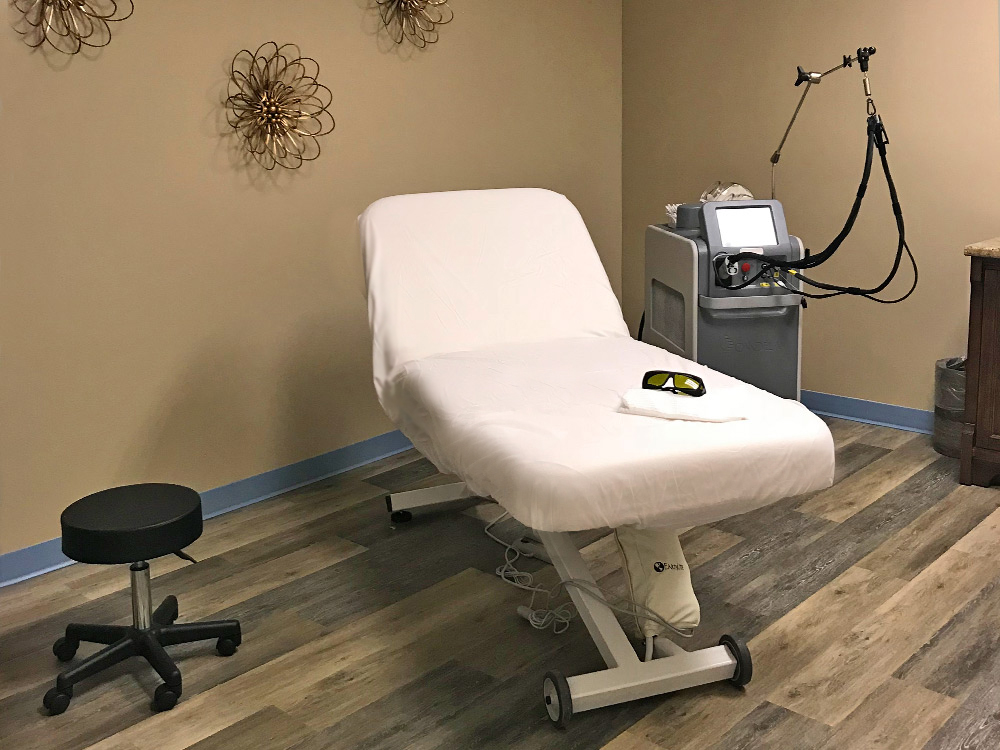Table of Content
- Provide Opportunities For Self-Reflection
- Module 16: Dentistry and Dementia
- Activities of Daily Living (ADL) and Assisting Persons with Dementia – 1.5 hours
- Content
- Preconception, Pregnancy, Birthing, and Lactation Needs of Transgender Men
- How To Sensitivity Training Improves Care in Nursing Home Settings
Health care providers and community members are provided with LGBT senior cultural competency and sensitivity training so that they can better relate to low-income elder LGBT and HIV/AIDS populations. Providing businesses in the United Kingdom with senior awareness and sensitivity training so that products and services are better able to reach the senior market. Global Action on Aging researches critical worldwide aging related issues and publishes reports. Issues relating to older adults such as income support, health access, and human rights are covered so that the quality of life of older adults worldwide can be improved.

As the continuing education accreditation for our 16 modules expires they will be placed here without the continuing education information. The quiz requires an 80% passing grade but don’t worry if you don’t pass the first time you are able to retry again until you do. Why do we include the quiz – It helps to reinforce the learning and our goal is not only that that you learn the skills and strategies, but you practice what we teach you in your everyday interactions with others. EHC - MODULE 2 - Understanding Dementia This course provides an introduction to Dementia.
Provide Opportunities For Self-Reflection
The goal is to increase awareness and sensitize the public about the state of the vulnerable elderly so that seniors can live with the social security and emotional support necessary to live a dignified life. American Society on Aging provides education and senior sensitivity training for professionals on diversity and multicultural aging to be used in the development of institutions and programs. Group psychotherapy's empirically supported usefulness is reason enough for its continued growth, but the approach will also prosper as health maintenance organizations require, and patients increasingly seek, group-level treatment methods. Group psychotherapy is an efficient therapy, for a single therapist can treat more than one individual at a time—a characteristic that is considered very valuable in healthcare systems that seek to minimize costs without cutting quality. But group approaches may also become more popular as clients seek out supportive, stimulating environments for achieving personal change.

Sensitivity training helps those working with seniors and the senior market to better understand the aging process and their target market. Funding, support and acceleration services for the development innovative aging related and brain health products, technology, services and best practices. The center supports start-ups working to make innovative aging related products which improve the lives of older adults. The course further emphasizes the role of workplace sensitivity and civility in promoting a respectful culture.
Module 16: Dentistry and Dementia
More than just security, security staff members are ambassadors for the organization they serve. The image, actions, and interactions with patients, visitors, and staff the healthcare security officer has should leave a positive feeling about the hospital and the security program. The initial training provided to new security officers must reinforce this message. In Vancouver, Canada a joint effort of healthcare unions, health authorities , provincial regulatory agencies and healthcare security managers, resulted in the 2011 release of a Provincial Violence Prevention Curriculum for healthcare workers across British Columbia.
If not identified and managed, these behaviors can undermine D&I efforts and lead to claims of discrimination and harassment. People living with dementia often stay in their homes during the early stages of the disease. The case managers work with the members to help them manage their health care and adhere to the treatment plan. In addition to their extensive assessment, the case managers have information generated from encounter data with the physician medical group and hospitals. The case managers at SCAN range in age from the very young to those who are almost seniors themselves.
Activities of Daily Living (ADL) and Assisting Persons with Dementia – 1.5 hours
In time, however, the method gained widespread acceptance as therapists added group sessions, either supplementing or completely replacing their individual sessions. Creating engaging compliance training and simple, customizable software that unlocks the potential in every organization. Microaggressions in the WorkplaceThis course explains what microaggressions are and the effect they can have on others, providing guidance for how to respond to microaggressions in a positive and effective manner.

The learning doesn’t have to stop after a training session or discussion. To further promote sensitivity in the workplace, offer scenarios that prompt employees to think about what they would do if a similar situation occurred. An inclusive organization that promotes a safe place to work has a number of benefits for both the employees and employer.
Gone are the days of “observe and report” with the security officer’s primary responsibility to stand by while clinical staff apply restraints. Today, security staff are permitted to apply restraints and are often a critical team member in this patient care process. CMS recognizes that security staff involvement can cause less harm and often less pain to the patient. The basic requirement is that if a security officer is involved in the application of restraints, he/she has to be trained and demonstrate competency in the safe application and use of restraints. Sensitivity training cannot simulate the actual experience of living with dementia and isn’t intended to do so. No training can replicate the anxiety, fear, possible delusions, and other wrenching experiences that people living with dementia face, nor can these programs fully help us understand their pain over all they’ve lost.
Dry matter, selected macro-nutrients and micro-nutrients , protein, carotenoids and chlorophyll content, cumulative produce and economic losses as well as the causes of losses were evaluated. The results obtained revealed significant quantitative, nutritive, and economic losses of African nightshade along the supply chain. The dry matter content was reduced by between 32.8–45.5%, depending on the county, along the supply chain. The mineral elements and protein were reduced by between 3.2–29.4%, while chlorophylls and carotenoids were reduced by between 70.9–90.9% and 70.4–91.9%, respectively. Cumulative produce loss was between 71.8–292.4% while the economic loss was between 12.6–34.4%. The findings indicate the immense losses of nutritional, quantitative and economic values of African nightshade along the supply chain.
The Australian Association of Gerontology connects professionals working in the aging related services industry and promotes awareness of aging related issues.Australia. The Leadership Council of Aging Organizations is a group of organizations concerned with advocating for the well-being of older adults and is committed to representing interests such as ageism and health care policy. Senior sensitivity training and awareness campaign to challenge the negative perceptions society has about older people in the United Kingdom. Senior sensitivity training for landlords in the United Kingdom on how to deal with elderly tenants and their specific needs and issues. Is also important and often combined with the de-escalation-type training.

A guide on how to conduct senior sensitivity training for students, youth or others who work with seniors. The training seeks to increase awareness of some of the challenges seniors may face. Jewish leaders receive senior sensitivity training by learning how to engage the elderly and address their ever changing challenges.
Indeed, the increasing popularity of self-help groups signals the need for treatments that take advantage of groups for promoting adjustment. Although the use of groups in business and educational settings was once considered innovative, individuals now expect to learn and work in group contexts. These experiences, combined with a growing collectivism in cultures that were once primarily individualistic, should heighten awareness of groups as a means of treatment. A comprehensive LGBT senior sensitivity training to help health and other service providers create welcoming, supportive and safe environments for Lesbian, gay, bisexual, and transgender seniors. Although not widespread, using a questionnaire to assess worker morale, attitudes, and perceptions in the 1950s was not new.

It should be noted that the delivery of sensitivity training is of critical importance for the training to be successful. If delivered poorly, it can have a negative impact on the culture of your organization. GF-diet was found to be poor in alimentary fiber due in particular to the necessary avoidance of several kinds of foods naturally rich in fiber (i.e. grain) and the low content of fiber of GF product that are usually made with starches and/or refined flours. B12 and folate, in addition to some minerals such as iron, zinc, magnesium and calcium. Moreover, an inadequate macronutrient intake was reported related above all to the focus on the avoidance of gluten that often leaving back the importance of nutritional quality of the choice.
Comprised of eight online and five classroom modules, this training program has become standard for all healthcare workers in the province across a range of healthcare settings. In the United Kingdom, The National Health Service has gone one step further with a national strategy on healthcare violence prevention that includes worker training. Patient sensitivity training programs can help care facilities manage risk, improve care to patients, and increase employee satisfaction and retention. They can be integrated into the employee onboarding process or ongoing education requirements.

In the past it was thought that surgical treatment of ambiguous genitalia to create a female appearance, particularly when a vagina was present, was more successful than construction of male genitalia. Sexual functioning is to a large extent more dependent on neurohormonal and behavioral factors than the physical appearance and functional ability of the genitalia. Similarly, controversy exists regarding the timing of the performance of invasive and definitive procedures, such as surgery. Whenever possible, without endangering the physical or psychologic health of the child, an expert multidisciplinary team should consider deferring elective surgical procedures and gonadectomies until the child can participate in the informed consent for the procedure. One study of 59 boys and 18 girls with gender dysphoria but without DSD or documentation of genomic or enzymologic abnormalities indicated that most of these children no longer have gender dysphoria after completion of puberty. Among those who do, homosexuality and bisexuality are the most frequent diagnoses.


No comments:
Post a Comment